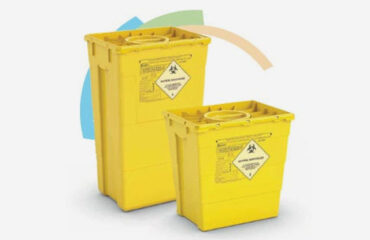Some Known Questions About Reclaim Waste.
Some Known Questions About Reclaim Waste.
Blog Article
Everything about Reclaim Waste
Table of ContentsFacts About Reclaim Waste RevealedNot known Details About Reclaim Waste The Best Guide To Reclaim Waste6 Easy Facts About Reclaim Waste ShownMore About Reclaim Waste
Residential sewer waste refers to the waste and products from a household septic storage tank. The correct management and disposal of residential sewer waste need fluid waste to be transferred to a sewage therapy plant where the proper approaches and equipment are applied to detoxify and dispose of waste.
Industrial waste often consists of prospective threats, such as combustible materials or a combination of liquid and strong waste products, and needs an extra advanced and in-depth disposal process. The disposal of industrial waste usually involves the purification of waste before transportation to make certain secure and proper disposal. Industrial waste is produced from by-products and drainage of commercial procedures and manufacturing.
This kind of waste can not use the very same sewer management transport or procedures as septic or business liquids. The industrial waste management procedure calls for the inspection and testing of fluid waste prior to it goes through the disposal process (liquid waste disposal melbourne). Overflow waste is the liquid waste that comes from runoff and excess stormwater in highly inhabited areas or cities
Drainage waste can trigger contamination and flooding if not dealt with appropriately. Making sure appropriate waste administration can stop catastrophes and decrease ecological damage.
Reclaim Waste for Dummies
Contact PROS Providers today to discover our waste administration and disposal services and the proper ways to care for the fluid waste you generate.
(https://slides.com/reclaimwaste1)Do you recognize what occurs to your water when you disengage, purge the toilet or drain pipes the cleaning machine? No? Well, it's worth understanding. This supposed 'wastewater' is not only a crucial resource but, after treatment, will be launched to our land, waterways or the ocean. Made use of water from bathrooms, showers, bathrooms, kitchen area sinks, laundries and industrial processes is called wastewater.

water used to cool down machinery or tidy plant and equipment). Stormwater, a kind of wastewater, is runoff that flows from farming and city areas such as roof coverings, parks, gardens, roads, paths and seamless gutters into stormwater drains, after rain. Stormwater moves without treatment directly to neighborhood creeks or rivers, ultimately getting to the ocean.
Reclaim Waste Fundamentals Explained
In Queensland, most wastewater is treated at sewage therapy plants. Wastewater is transferred from other domestic or commercial websites through a system of sewers and pump terminals, called sewerage reticulation, to a sewage treatment plant. Local governments construct, maintain and run most sewer therapy plants. Operators are licensed under the Environmental Protection Act 1994 to discharge cured wastewater at an appropriate environmental requirement right into waterways.
The Department of Natural Resources recommends city governments about handling, operating and preserving sewerage systems and therapy plants. In unsewered locations, regional governments might call for homeowners to install individual or household sewer therapy systems to deal with residential wastewater from toilets, cooking areas, restrooms and laundries. The Division of Natural Resources authorises using household systems when they are verified to be reliable.
In some new subdivisions, therapy of some stormwater to remove clutter, sand and gravel has started utilizing gross toxin traps. Wastewater therapy occurs in 4 phases: Eliminates solid matter.
Utilizes tiny living microorganisms recognizes as micro-organisms to damage down and remove continuing to be dissolved wastes and fine fragments. Micro-organisms and wastes are integrated in the sludge.
Everything about Reclaim Waste
Nutrient removal is not available at all sewer therapy plants since it needs costly specialized devices. It is ending up being extra usual in Queensland. Clear fluid effluent created after treatment may still contain disease-causing micro-organisms. If this effluent is released right into rivers such as rivers or the sea, the micro-organisms will eventually die out.

This normally suggests wastewater has actually to be treated or contaminants removed before it can be released to waterways. Many wastewater flows right into the sewerage system. Under the Act, city governments provide approvals and permits for environmentally pertinent tasks (ERAs) entailing wastewater releases that could have a regional effect. The division administers authorizations and permits to Ages involving wastewater launches that may have a regional or statewide impact.
Reclaim Waste Can Be Fun For Anyone
Tracking gives valid info concerning water top quality and can validate that permit problems are being fulfilled. The information acquired with surveillance provides the basis for making water high quality choices.
Report this page